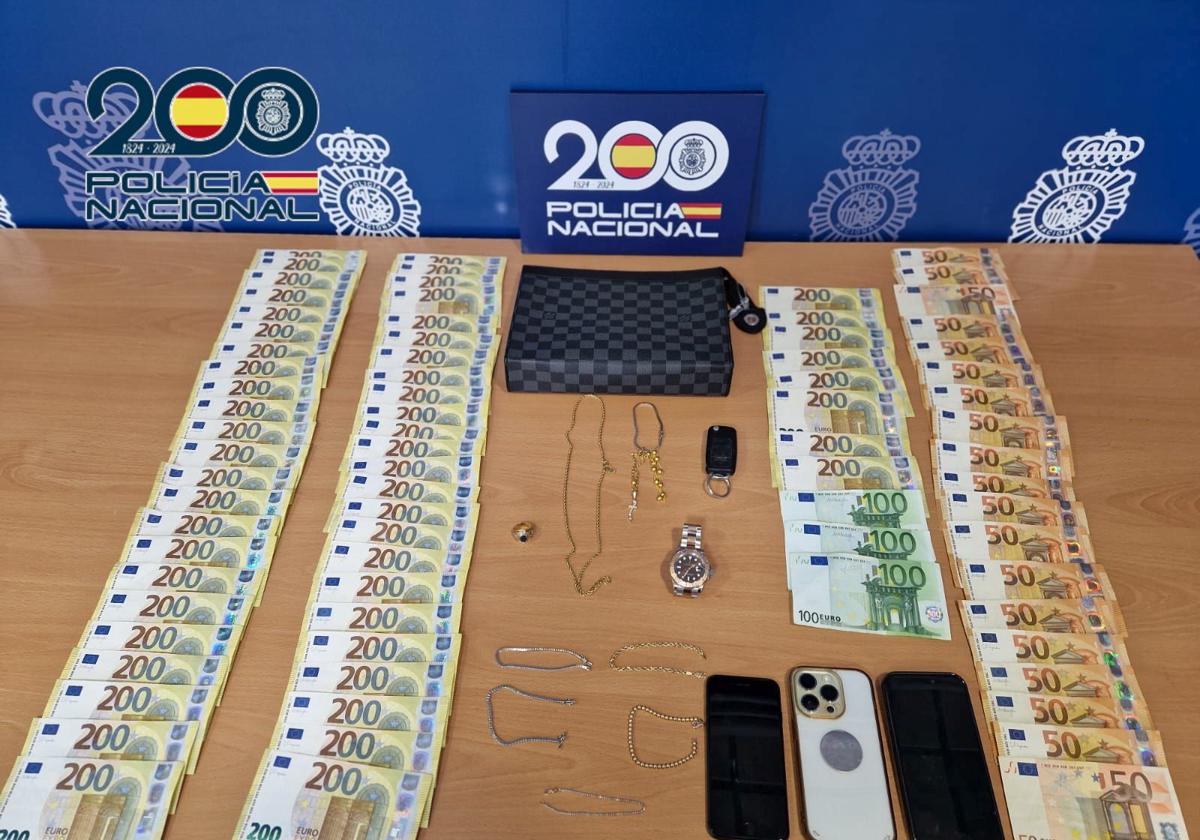

Sections
Highlight

María José Díaz Alcalá
Malaga
Tuesday, 14 January 2025, 16:30
National Police officers in Spain have caught two men suspected of being involved in swindling scams by observing the same pattern and a match in physical characteristics of one of the perpetrators in two separate cases: one in Ronda in 2023 and one in Alicante in 2024. The men would pose as parties interested in high-price transactions, lying about their occupation and true intentions, which helped them scam two people within a year.
In the case in Ronda in 2023, the two perpetrators posed as a real estate agent and a diplomat from a Middle Eastern country interested in buying two properties - one in Ronda and the other in Arcos de la Frontera (Cadiz province). They managed to trick the owner of the land that was being sold into taking along 20,000 euros in cash to one of their appointments, with which he would pay the supposed real estate agent for his mediation work. Although the victim eventually expressed his desire to back down, once he realised the suspects' true intentions, they allegedly snatched the bag from him.
Police investigators had run out of clues in this particular case, until another individual filed a complaint in Alicante a year later. He had been tricked by two men posing as expert jewellery buyers and collectors who wanted to acquire a series of high-end watches that the victim was trying to sell on second-hand internet platforms.
The plaintiff told the police officers that, after initial contact with the supposed buyers, he went to the meeting where they had planned to make the purchase. With him, he had four high-end watches, as well as several gold pieces. They met in a hotel room in Alicante. The suspects came with a bank note counter to illustrate the money they were carrying. However, they would never hand the money over to the victim.
After counting the notes (36,000 euros), which one of the supposed collectors placed in an opaque bag, they began to make a series of "excuses" to speed up the transaction. Taking advantage of the moment, they exchanged the bag with the money for another with counterfeit money. They then left, taking the thousands of euros in cash, the high-end watches and the gold pieces with them.
When the scammed man finally realised the trick, he could do nothing more than inform the National Police, who opened an investigation. The investigators realised that there had been a similar case in Malaga, that had used the same swindling method. Moreover, the descriptions of the physical characteristics of one of the perpetrators in both cases coincided.
As the investigation continued, the police identified three men connected to the alleged criminal scheme who had, in various ways, participated in the offences. This led to the implementation of a tracking operation, culminating in the arrest of two suspects at a well-known shopping centre in Alicante. During the arrest, authorities seized over 12,000 euros, which led investigators to suspect that they were planning to commit another fraud.
The details of these two cases have been brought to the attention of Alicante's police court, while the investigation remains still open, as further arrests are not ruled out.
Phase 1: Contact. Perpetrators meet people who are selling a property or high-value objects. In this phase, the victims are made to look solvent and very interested, lying about their work and their true affiliation.
Phase 2: Building trust and arranging the transaction. Various telephone and physical contacts are made and plans for different transactions are set in stone. The perpetrators gain the victim's trust, convincing them to do business with them.
Phase 3: Execution of the scam. The victim has to bring/give cash, cryptocurrencies or an agreed-upon physical luxury item. The perpetrators first show real notes and then trick the victim by handing them bundles of facsimile money.
Publicidad
Publicidad
Publicidad
Publicidad
Esta funcionalidad es exclusiva para suscriptores.
Reporta un error en esta noticia
Comentar es una ventaja exclusiva para registrados
¿Ya eres registrado?
Inicia sesiónNecesitas ser suscriptor para poder votar.